Search Result
HIV and AIDS history
Books
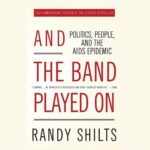 And The Band Played On | Randy Shilts | 1987
And The Band Played On | Randy Shilts | 1987
And the band played on | Randy Shilts | Macmillan (US)
"Upon its first publication twenty years ago, "And the band played on" was quickly recognised as a masterpiece of investigative reporting. An international bestseller, a nominee for the National Book Critics Circle Award, and made into a critically acclaimed film, Shilts' expose revealed why AIDS was allowed to spread unchecked during the early '80s while the most trusted institutions ignored or denied the threat. One of the few true modern classics, it changed and framed how AIDS was discussed in the following years. "And the band played on" remains one of the essential books of our time." (Macmillan)
"And the band played on" is also a 1993 American television film docudrama based on the book. The film premiered at the Montreal World Film Festival before being broadcast by HBO on September 11, 1993.
And the band played on | Closing scene | HBO Films | 1997 | 4m 27s
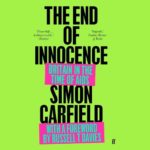 The End Of Innocence | Simon Garfield | 1994
The End Of Innocence | Simon Garfield | 1994
The End Of Innocence | Simon Garfield
"The End Of Innocence" looks at a decade of AIDS in Britain. As well as the 8000 who have died, some 20,000 are infected with HIV, and many more carry the virus unknowingly. With no cure or even a vaccine in sight, and growing evidence of complacency, AIDS is still one of the greatest post-war challenges the UK faces. This book covers every significant development of the disease, from the early ignorance and panic to the emergence of AIDS as a good cause taken up by Sir Ian McKellen, George Michael and the Princess of Wales. The author uses information supplied by doctors, scientists, government ministers and civil servants, as well as interviews with leading entertainment figures such as Stephen Fry, Elton John and the late Derek Jarman." (Simon Garfield)
In 1995, the BBC made a documentary based on the book highlighting the shameful attitudes of the British public and politicians during the 80s and early 90s towards HIV/AIDS awareness, education and gay men.
The End of Innocence, part 1/ 6 | BBC Documentary/ Fine Cut | 1995
The End of Innocence, part 2/ 6 | BBC Documentary/ Fine Cut | 1995
The End of Innocence, part 3/ 6 | BBC Documentary/ Fine Cut | 1995
The End of Innocence, part 4/ 6 | BBC Documentary/ Fine Cut | 1995
The End of Innocence, part 5/ 6 | BBC Documentary/ Fine Cut | 1995
The End of Innocence, part 6/ 6 | BBC Documentary/ Fine Cut | 1995
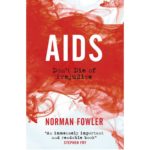 AIDS Don't Die of Prejudice | Norman Fowler | 2015
AIDS Don't Die of Prejudice | Norman Fowler | 2015
AIDS Don't Die of Prejudice | Norman Fowler | Biteback Publishing
"AIDS: Don’t Die of Prejudice" is both an in-depth investigation and an impassioned call to arms against the greatest public health threat in the world today. Norman Fowler has travelled to nine cities around the globe to report on the position today. What he discovered was a shocking blend of ignorance, prejudice, bigotry and intolerance. In Africa and Eastern Europe, a rising tide of discrimination against gays and lesbians prevents many from coming forward for testing. In Russia, drug users are dying because an intolerant government refuses to introduce the policies that would save them. Extraordinarily, Washington has followed suit and excluded financial help for proven policies on drugs, and has turned its back on sex workers.
In this lucid yet powerful account, Norman Fowler reveals the steps that must be taken to prevent a global tragedy. " (Biteback Publishing)
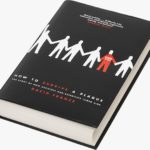 How To Survive A Plague | David France | 2017
How To Survive A Plague | David France | 2017
How to survive a plague | David France | Pan Macmillan Books
"How to Survive a Plague by David France is the riveting, powerful and profoundly moving story of the AIDS epidemic and the grass-roots movement of activists, many of them facing their own life-or-death struggles, who grabbed the reins of scientific research to help develop the drugs that turned HIV from a mostly fatal infection to a manageable disease.
Around the globe, the 15.8 million people taking anti-AIDS drugs today are alive thanks to their efforts. Not since the publication of Randy Shilts's now classic And the Band Played On in 1987 has a book sought to measure the AIDS plague in such brutally human, intimate, and soaring terms. Weaving together the stories of dozens of individuals, this is an insider's account of a pivotal moment in our history and one that changed the way that medical science is practised worldwide." (Pan Macmillan)
How to survive a plague | Trailer | 2013
How to survive a plague | Film review | The Guardian | 10 Nov 2013
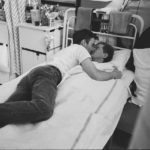 The Ward | Gideon Mendel | 2017
The Ward | Gideon Mendel | 2017
The Ward | Gideon Mendel | Trolley Books
In 1993, Gideon Mendel spent a number of weeks photographing the Broderip and Charles Bell wards in London’s Middlesex Hospital as part of the ‘Positive Lives’ project. The Broderip was the first AIDS ward in London and was opened by Diana, Princess of Wales in 1987, this year marking the 30th anniversary of its opening. This was the era before antiretroviral medications had become available, a very distinct and tragic time. All of the patients on the wards, many of whom were young, gay men, were having to face the terrifying prospect of an early and painful death.
These two wards at The Middlesex Hospital were some of the few dedicated AIDS wards that existed in London, and even more unusual for their decision to open themselves to being photographed. Considering the high levels of stigma and fear that existed at the time, the decision of these four patients to allow themselves, alongside their families, lovers and friends to be photographed was an act of considerable bravery. ‘The Ward’ explores through Gideon Mendel’s evocative black and white photographs how it felt to live with HIV at this time when it was considered a veritable death sentence. It shows how the ward at the Middlesex Hospital became more like a second home, and the staff and patients friends.
When You Call My Name
When You Call My Name | Tucker Shaw | Penguin Books | 2022
"A heartrending novel about two gay teens coming of age in New York - perfect for fans of It's a Sin and Adam Silvera. It's 1990 in New York City. Adam is falling in love for the first time. Ben is leaving home for the last. Drawn by the city's irresistible energy, the boys are swept up into the queer scene, where the potential for life and love seems limitless. But as the shadows of prejudice gather, Ben and Adam discover how their newfound community is facing the looming threat of AIDS, which will touch their lives more closely than they ever could have imagined. Heartbreaking yet hopeful, When You Call My Name tells the story of the moments that break our hearts and the people who make us whole - and shows how together we burn brightest in times of darkness."
↑ Back to top